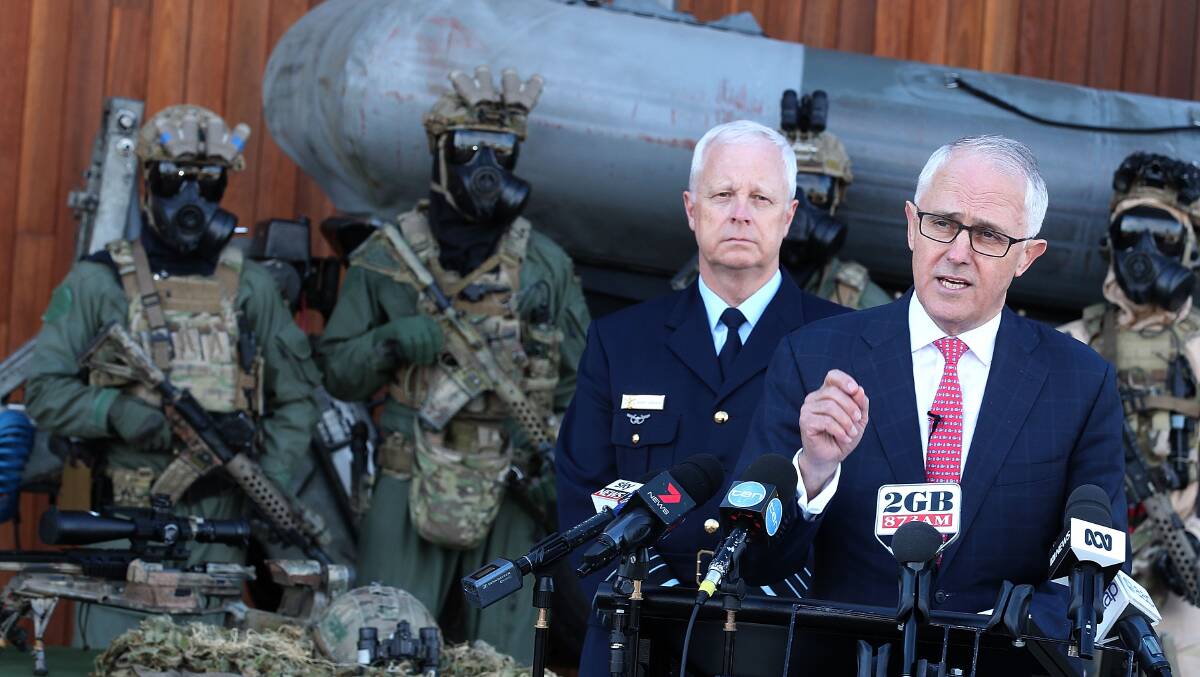These days there aren't many scams bigger than all the fuss we're making about the threat of terrorism coming to our shores. What makes the scam worse is that we bring it on ourselves.
Subscribe now for unlimited access.
$0/
(min cost $0)
or signup to continue reading
According to a survey conducted by the Australian National University last year, 45 per cent of people said they were somewhat or very concerned that they or their family could be the victim of a terrorist attack in Australia.

But this degree of concern is totally out of whack with the actual risk of being attacked.
In the past two decades, just three people have died as victims of terrorist attacks (broadly defined) in Australia. They were the two victims of the Martin Place siege and the NSW police accountant Curtis Cheng.
Professor Greg Austin, of the Australian Centre for Cyber Security at the University of NSW, has written that more Australians have died at the hands of police, lawfully or unlawfully, in 10 years – at least 50 between 2006 and 2015 – than from terrorist attacks in Australia in the past 20 years.
What about the more than 318 deaths from domestic violence just in 2014 and 2015? While Australia's alcohol toll is 15 deaths and 430 hospitalisation a day.
Between 2003 and 2012, there were 2617 homicides and 190 deaths from accidental gun discharges. More than 130 rural workers died from falling off vehicles, 206 died from electrocution and 1700 Indigenous people died from diabetes.
Why do we so greatly overestimate the risk of being affected by terrorism? Many reasons.
Trouble is, most of what we know about what's happening beyond our personal experience comes to us from the news media, and the media focus almost exclusively on happenings that are highly unusual, ignoring the everyday occurrences.
They do so because they know this is what we find most interesting. The unfortunate consequence is we can't help but acquire an exaggerated impression of how common terrorist incidents are and how likely it is one could affect us.
But it's not all the media' fault. Of the many threats we face, we take special interest in terrorism because it's far more exciting than boring things like road accidents or people drinking too much.
Our response to terrorism is emotional rather than thoughtful. And that leaves us open to manipulation by people with their own agendas.

